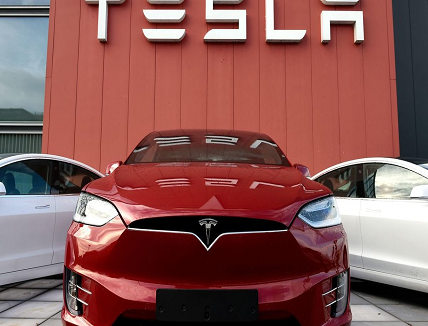
Even after months of talks, Tesla’s India debut may appear to be a long way off. However, in recent days, there has been a surge of welcome gestures by several state governments for the electric car behemoth to set up shop under their jurisdiction.
Surprisingly, while the Narendra Modi administration holds the key to investment by the US electric vehicle maker, states ruled by opposition parties have suddenly began to show interest.
Over the weekend, legislators and officials from five states—Telangana, Maharashtra, Punjab, West Bengal, and Tamil Nadu—took to Twitter to encourage CEO Elon Musk to begin operations in their respective states, providing superior infrastructure, sustainability, and a simplified clearance procedure.
Their presentations followed Musk’s Jan. 12 article, in which he stated that Tesla is still facing “a lot of challenges” with the Indian government.
Different states, different EV policy
Tesla has claimed hefty import duties as a reason for not launching in India for the past three years. It opened its first India unit in the southern state of Karnataka in January. However, there has been no word about the launch itself.
Following Musk’s recent tweet on the subject, Telangana’s industry and commerce minister KT Rama Rao was the first to send an invitation.
Telangana’s state EV strategy (pdf) aspires to attract private investments of $4 billion (29,752 crore rupees) in the industry by 2030 through shared mobility, charging infrastructure development, and car and energy-storage system manufacturing.
On a case-by-case basis, the state government has pledged to provide tailored incentives to big and important projects.
Ghulam Rabbani, a minister in the West Bengal administration led by Chief Minister Mamata Banerjee, tried it a day later. West Bengal seeks to become a sustainable transportation infrastructure powerhouse (pdf) and plans to produce a million EVs across all sectors by 2026.
Jayant R Patil, Maharashtra’s water resources minister, had his turn on January 16.
One of India’s most industrialised states’ EV policies encourages the use of sustainable and clean mobility options. It is even considering a drastic proposal to deregister gasoline and diesel automobiles.
Maharashtra is said to have given Tesla land tracts in and around Mumbai, Pune, and other locations.
A few hours after Patil’s tweet, Punjab Congress chief Navjot Singh Sidhu pitched the “Punjab Model” and his state’s single-window clearance for investments. Punjab wants to make Ludhiana a centre for electric vehicles and batteries.
Tesla’s India ambitions face hurdles
The world’s highest import levies are a major stumbling block in Tesla’s India plan: 60% on EVs priced under $40,000 (29.7 lakh rupees) and 100% on those priced beyond $40,000.
Tesla plans to levy a 40% tax on fully constructed EVs. For comparison, its automobiles start at $44,690 in the United States, implying that the firm will pay a 100 percent import duty in India.
During a discussion with Musk and Modi in September, Tesla stated that investing in India is economically unviable under the existing tax system.
The car industry is divided on the issue as well. While Audi, Mercedes-Benz, and Hyundai India, all of which offer imported EVs in India, have supported Tesla’s stance, homegrown Ola Electric and Tata Motors are concerned
State of India’s EV industry
India’s enthusiasm for EVs is not being mirrored in the construction of infrastructure needed for the sector to thrive: There are now 947,876 registered EVs in the nation, but only 1,028 public charging stations. Any firm that can make EVs inexpensive will have a chance to dominate the market. However, the difficulties are numerous.
The product is now pricey for a couple of reasons: one is owing to raw material imports, and the other is due to expensive batteries. If we can take care of both aspects by manufacturing them domestically, the pricing issue may be resolved. While the federal and state governments are aggressively encouraging the use of EVs, their efforts are mostly focused on promoting local EV manufacture.
The road tax and registration expenses for electric four-wheelers are fully eliminated in most states. This shows that India is serious about becoming a top EV centre.
However, this is certainly insufficient.


















